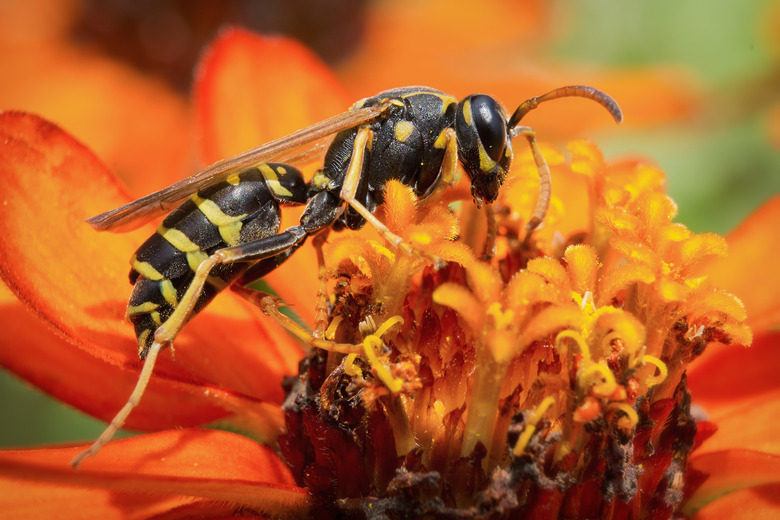Does Sound Repel Wasps?
Wasps may seem like a nuisance, especially when you find them in your garden or near your home, but they have a beneficial role in the ecosystem. There are an array of repellents, traps, baits, and insecticides to get rid of wasps. If you're looking for a nontoxic and environmentally friendly solution, sound repellents may seem like a good choice. This type of repellent emits a high-frequency sound to kill or deter pests, such as wasps. Although sound repellents are widely available, there is insufficient scientific data to support the claim that they are effective.
The Concept Behind Sound Repellents
The Concept Behind Sound Repellents
The idea behind sound repellents to deter pests is to use sonic, ultrasonic, or infrasonic sound waves, in which pests will steer clear of an area where a high-frequency sound is emitted. Sound repellents that are on the market need to be plugged into an electrical outlet or require batteries to operate. When the device is switched on, it emits a high-pitched sound that isn't (usually) audible to humans. However, it may be possible for some individuals with sensitive hearing to notice and some animals, such as dogs, can hear these frequencies.
Data Shows Sound Doesn't Work
Data Shows Sound Doesn't Work
Researchers and scientists have conducted different studies over the years to test if sound repels, deters, or kills different types of pests, such as ants, cockroaches, mosquitos, and ticks, as well as rodents. There isn't any evidence that these sound devices work. For example, a study reported in Insect Science in 2006 tested three commercially available sound repellents to kill or deter the German cockroach, and there was no evidence showing these devices were effective.
In another study reported in Insects in April 2021, researchers tested 19 different ultrasonic devices against the female tick Ixodes holocyclus. The results showed that the sound repellents only repelled 19.5 percent of the ticks; after the study, researchers were unable to recommend sound repellent products as a method to prevent potential tick bites.
What To Do to Eliminate Wasps
What To Do to Eliminate Wasps
If you find a wasp nest in the garden in a bush or tree, stay away to avoid being stung. Although wasps play an important role in the ecosystem, including pollinating flowers and being a source of food to spiders, birds, reptiles, raccoons, and other creatures, they can also create problems for plants, such as causing plant gall, which is abnormal growth on plant leaves. They can also create tunnels or holes in the soil.
Before deciding on using a trap or bait, it's important to know the species of wasp to ensure effectiveness. Insecticides may work but before spraying, make sure you protect yourself because wasps can detect if their nest is being poisoned and may attack.
If you have wasp nests in the garden or near your home, it's a good idea to call a pest management company and have the experts take care of the problem for you.
